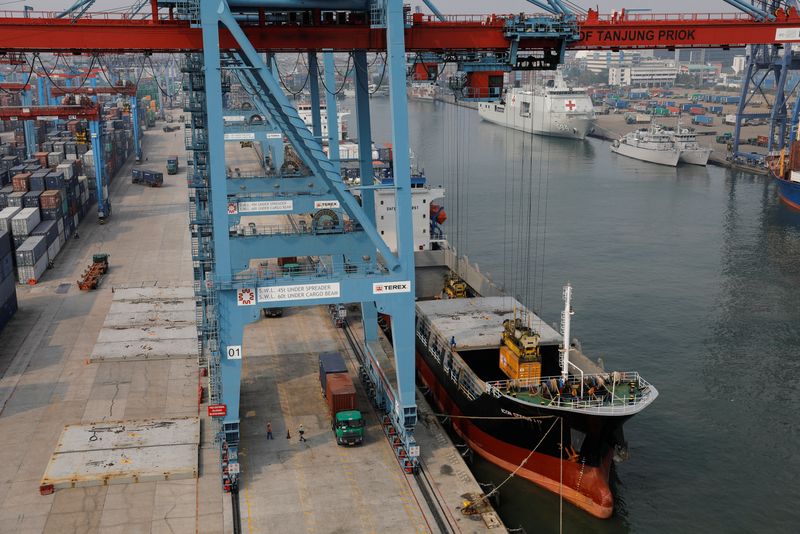Indonesia records $3.56 billion trade surplus in April, above forecast
2024.05.15 03:06

By Gayatri Suroyo and Ananda Teresia
JAKARTA (Reuters) -Indonesia posted a slightly bigger-than-expected trade surplus in April of $3.56 billion, as the country saw smaller-than-estimated imports, statistics bureau data showed on Wednesday.
A Reuters poll of economists had expected a surplus of $3.30 billion. The March surplus was upwardly revised to $4.58 billion.
Southeast Asia’s largest economy has been reporting a merchandise trade surplus every month in the past four years, but the surplus has been narrowing recently amid weaker exports.
Exports from the resource-rich country have been hurt for more than a year by declining commodity prices and weakening global trade.
In April, exports rose 1.72% from a year earlier to $19.62 billion, below the 4.57% expected by economists polled by Reuters. Despite coming in below forecast, April’s export expansion was Indonesia’s first in 11 months.
The value of coal shipments fell an annual 19.26% in April to $2.61 billion, even though export volumes rose, due to the impact of falling global coal prices. Coal is Indonesia’s biggest export.
Imports rose 4.62% to $16.06 billion, compared with economists’ prediction of an 8.69% annual increase.
The April trade data reinforced Bank Permata economist Josua Pardede’s expectation that Indonesia will continue to see its trade surplus declining and current account deficit widening – but only moderately – this year.
“Since inflation expectations remain subdued and the rupiah exchange rate is stable considering manageable external balance, therefore we think that BI (Bank Indonesia) will likely maintain BI rate at 6.25% in May BI meeting,” Pardede said, referring to the country’s central bank.
3rd party Ad. Not an offer or recommendation by Investing.com. See disclosure here or
remove ads
.
BI will hold its monthly monetary policy review next week. The central bank in April delivered a surprise rate hike to support the rupiah currency after it fell to four-year lows against the U.S. dollar.
Governor Perry Warjiyo said last week the central bank would likely not need to raise rates further as the currency has stabilised and capital inflows have returned.








